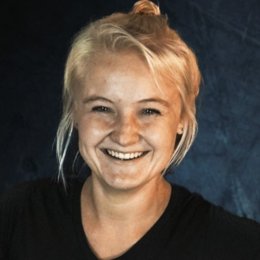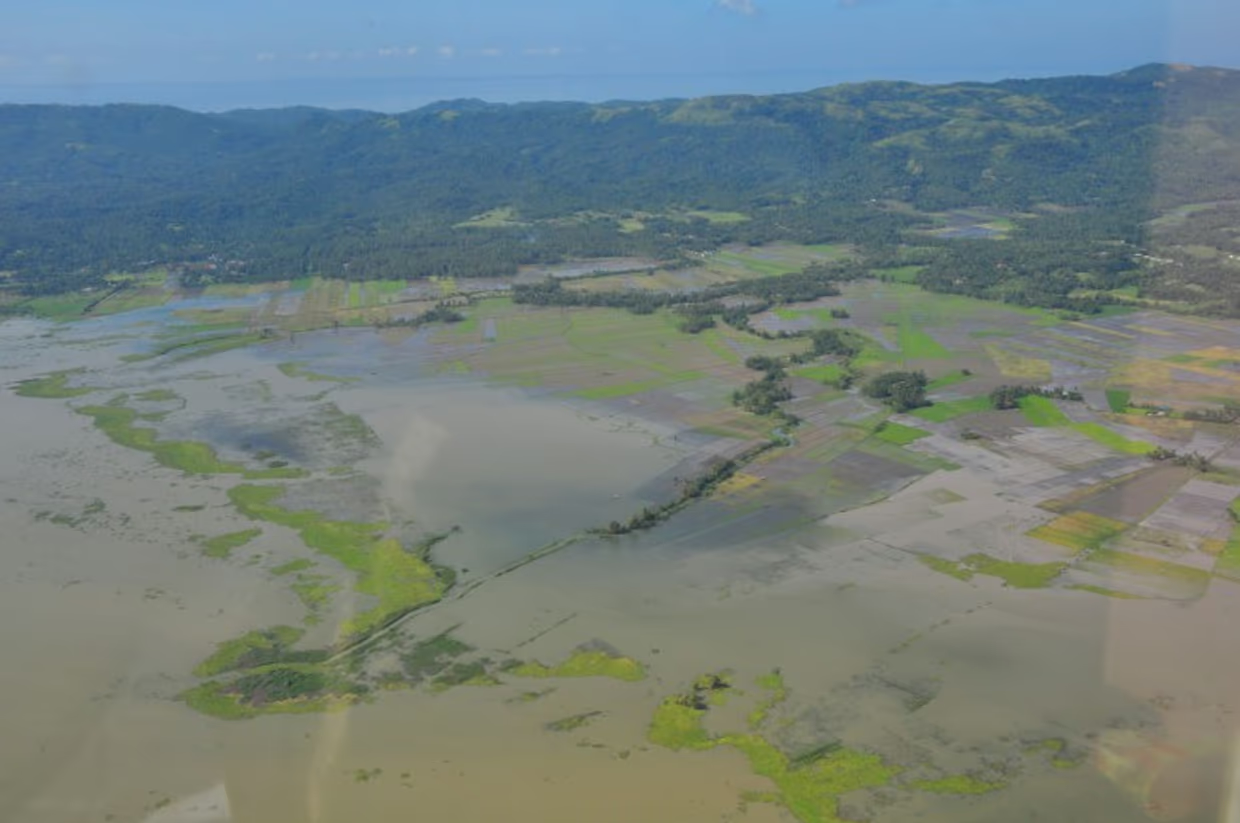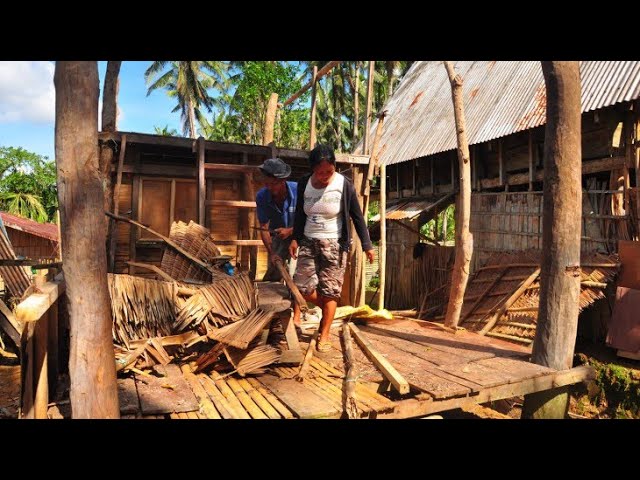This year, Demi Vonk (24) graduates from the Master’s Programme Spatial Engineering at the Faculty of Geo-Information Science and Earth Observation. And she does this in her own unique way: with a video based on her thesis. Demi started her BSc. in 2015 at University College Twente, the Liberal Arts and Sciences college of the University of Twente. ‘After my Bsc., I decided to stay for another year to help further develop that study program. Next, I learned about Spatial Engineering at the ITC Faculty.’ While she truly enjoyed working on her thesis, she kept thinking: ‘what if my work is just going to end up in the library for a select group of people to read?’ That's why Demi decided to make a video of her thesis.
“When I started my MSc. at the ITC Faculty, I already knew that I wanted to do my thesis on a topic related to the work of the International Federation of Red Cross Red Crescent Societies (IFRC). It’s a place where science meets society and where all sorts of disciplines come together”, says Demi.
How did you come up with your research topic?
“I noticed that one of my supervisors had an email signature that included all his recent co-publications. There I found this paper that compared temporary, forecast-based flood risk reduction measures to long-term preventive ones. This paper reminded me of what I had been reading on the efforts by the Philippine Red Cross, which extended their post-disaster humanitarian aid to forecast-based action. When a tropical cyclone forecast exceeds a pre-defined threshold, they distribute Shelter Strengthening Kits to temporarily strengthen wooden homes. This should help the house better sustain the extreme winds. Their protocol has gained so much traction that several local governments have indicated interest to fund some of these efforts. I found that particularly interesting, because traditionally it is governments that invest in long-term prevention efforts – such as permanently upgrading a house.”
“So now you have this case where actors involved in different phases of disaster risk management are having intentions for putting in efforts towards a shared means – which is of course exactly what you would want – but in such cases, you may, of course, wonder if it’s the most effective thing to do. As the original paper used a fictional case study, I thought this real-world case study would be very relevant to further deepen the framework. If we manage to create a generally applicable framework that can help to identify how such efforts compare, you can get actors around the table to discuss how budgets can be most effectively spend towards risk reduction – which is much needed given that climate change will only further increase the number and intensity of natural hazards.”
Why make a video next to your traditional master thesis?
“I truly enjoyed working on this topic. It totally met my expectations of having to combine different perspectives and disciplines, and it was great to get supervision from so many experts in different fields of study. I enjoyed thesis writing slightly less. I kept thinking: what if my thesis is just going to end up in the library for a select group of people to read – how is that time and effort well spend? And even then, who is going to read that entire report? Maybe it is just me, but I always get lost after one sentence of reading journal papers. That’s why, at some point, I decided I would make a ‘sit back and see if this is relevant for you’ equivalent alternative to a 10 minute-painstaking effort to browse through a report. That is when I created this video.”
“In fact, this video is a slightly altered version of one that I had made earlier for a conference that I was invited to; they wanted to have recorded presentations in case of technical difficulties but mentioned they might want to put them on YouTube as well. This means that a larger public would have access to it. Now imagine one day you browse YouTube and find this presentation that has pictures of something that looks like the house you’ve just lost to a tropical cyclone, and someone is using all sorts of difficult jargon that you cannot follow, but you do frequently hear terms like ‘cost-effectiveness’ and ‘money’. I don’t think that’s fair. Besides, I believe science outreach, in general, is important. I mean, if you truly want to spark change you should have people across all levels of society involved in discussions – not just those that understand your jargon. That conference video just focused on societal relevance, the results, and what those do and do not mean.”
What is your next plan?
“I felt the thesis deadline was blocking my horizon slightly, so I have not really had the chance to think about a concrete plan for the future yet. All I know is that I go out for sushi tonight. Beyond that, I know I want to keep following my passion for linking science to society, preferably in combination with bridging disciplines. Now that I hear myself say this... maybe I should check the vacancy page of the Red Cross?”
More recent news
 Fri 12 Dec 2025Retrospective of the UT Climate Event 2025
Fri 12 Dec 2025Retrospective of the UT Climate Event 2025 Fri 5 Dec 2025Transforming urban policy for a healthier and safer Enschede (and other cities)
Fri 5 Dec 2025Transforming urban policy for a healthier and safer Enschede (and other cities) Fri 28 Nov 2025ITC PhD Publication Award 2025 Ceremony
Fri 28 Nov 2025ITC PhD Publication Award 2025 Ceremony Mon 10 Nov 2025Dutch spinoff launches groundbreaking global flood forecasting tool
Mon 10 Nov 2025Dutch spinoff launches groundbreaking global flood forecasting tool Wed 5 Nov 2025New Geoversity course on Geospatial Auditing launched in collaboration with the Netherlands Court of Audit
Wed 5 Nov 2025New Geoversity course on Geospatial Auditing launched in collaboration with the Netherlands Court of Audit




